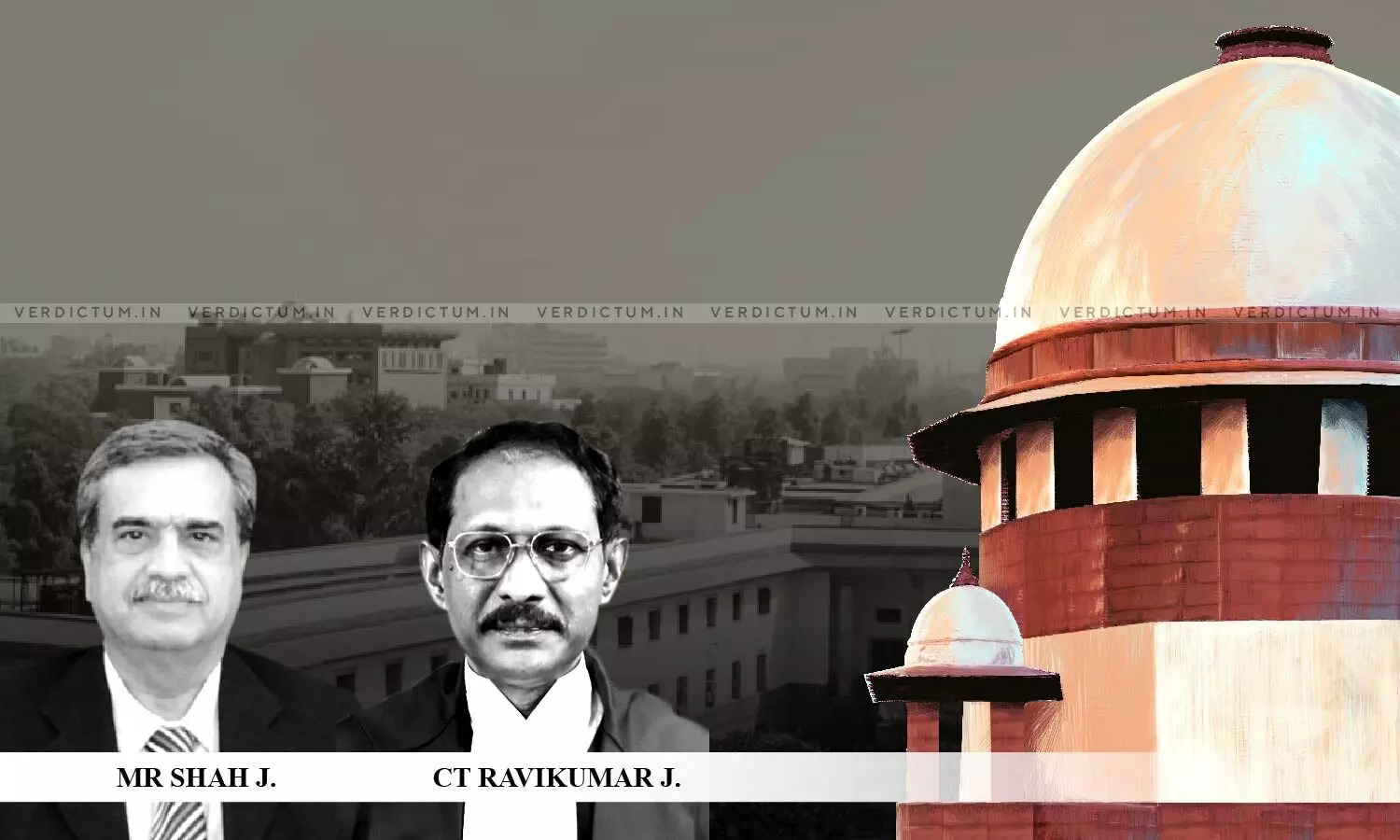
It Is The Duty Of Referral Court To Examine Existence Of Arbitration Agreement U/s. 11(6A) Of Arbitration Act: Affirms SC
 |
|The Supreme Court while dealing with a Civil Appeal has in its recent judgment held that as per the Section 11(6A) of the Arbitration and Conciliation Act, 1996, it is the duty cast upon the referral court to consider the dispute/issue with respect to the existence of an arbitration agreement. The Court clarified that when the validity of an arbitration agreement is concerned, as the same goes to the root of the matter, it has to be conclusively decided by the referral court at the referral stage itself.
The question posed before the Bench of Justice M.R. Shah and Justice C.T. Ravikumar was on the jurisdiction of the referral court at a pre-referral stage when the issue with respect to the existence and validity of an arbitration agreement is raised. The Supreme Court was dealing with an appeal challenging the order passed by the Delhi High Court which referred the disputes before them for arbitration and appointed the sole arbitrator.
The Appellant before the High Court had objected to the existence of an arbitration agreement/clause but the High Court considering the complexity of the transaction involved, referred the disputes for arbitration and appointed the arbitrator. Challenging the referral order by the High Court, the appellant moved before the Apex Court and contended that as per the Section 11(6A) of the Arbitration and Conciliation Act, 1996 while exercising the prereferral jurisdiction, the Court has to consider and examine the existence of an arbitration agreement and it should not be left to the Arbitral Tribunal.
The Appellants stated that the Court has to give a specific finding on the existence and validity of an arbitration agreement at the stage of prereferral jurisdiction itself and that it is the duty cast upon the referral court to protect the parties from being forced to arbitrate when the matter is demonstrably non-arbitrable. "If ultimately it is held that there is no existence of an arbitration agreement and/or there is no valid arbitration agreement and the said issue is left to be decided by the arbitral tribunal in that case the entire exercise by the arbitral tribunal will be futile." submitted the Appellant.
Wherein, the Respondent contended that in the present case all the agreements, namely, SHA-1, SHA-2 and MOU-1 are required to be read along with MOU-2 and that the agreements other than MOU-2 do contain the arbitration clause. The Respondent further said that the High Court in paragraph 22 has specifically observed and opined that the four agreements are indisputably interconnected and that the High Court has rightly referred the disputes between the parties to the arbitration.
Senior Advocate Preetesh Kapur appeared on behalf of the appellant and Senior Advocate Neeraj Kishan Kaul appeared on behalf of the contesting respondent – the original applicant.
Considering the submissions made, the Supreme Court referred to the Section 11(6A) of the Arbitration and Conciliation Act and noted that "as per the Section 11(6A) of the Act, it is the duty cast upon the referral court to consider the dispute/issue with respect to the existence of an arbitration agreement"
The Court further held that "So far as the first issue with respect to the existence and the validity of an arbitration agreement is concerned, as the same goes to the root of the matter, the same has to be to conclusively decided by the referral court at the referral stage itself." The Court also held that the prima facie review at the reference stage is to cut the deadwood and trim off the side branches in straightforward cases where dismissal is barefaced and pellucid and when on the facts and law the litigation must stop at the first stage.
The Bench also noted in its judgment that sans an agreement, there cannot be any reference to the arbitration and that the intention behind the insertion of Section 11(6A) in the Act was to confine the Court, acting under Section 11, to examine and ascertain about the existence of an arbitration agreement.
Accordingly, the Supreme Court quashed and set aside the order and remitted it back to the High Court/referral court to decide the respective arbitration petitions afresh.
Cause Title: Magic Eye Developers Pvt. Ltd. v. M/s. Green Edge Infrastructure Pvt. Ltd. & Ors. Etc.